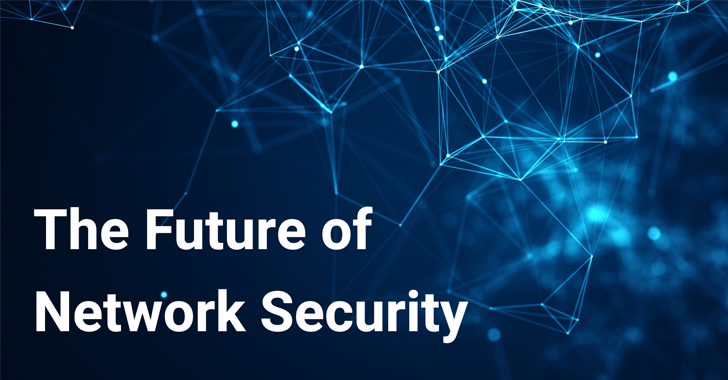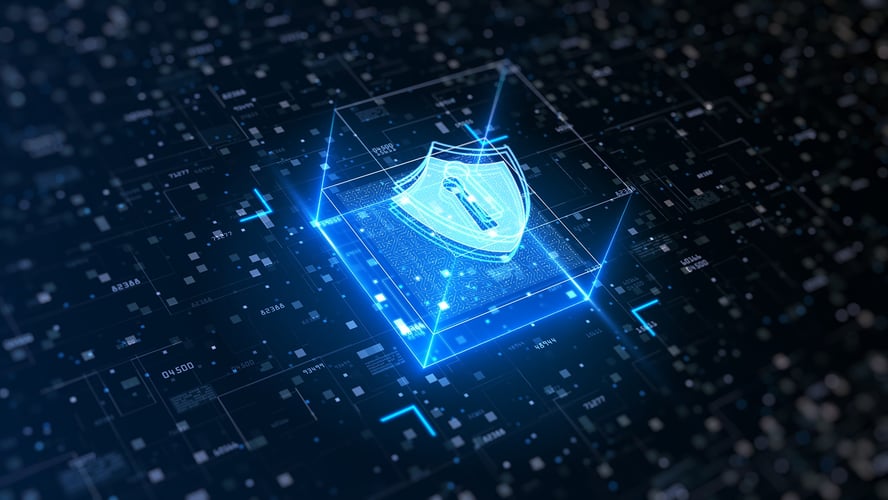Why Data and Network Safety Should Be a Leading Priority for each Company

Boosting Cyber Hazard Landscape
As organizations progressively depend on digital facilities, the cyber danger landscape has actually expanded significantly a lot more risky and complicated. A wide variety of innovative assault vectors, including ransomware, phishing, and advanced consistent dangers (APTs), posture substantial dangers to sensitive information and operational continuity. Cybercriminals utilize evolving modern technologies and methods, making it necessary for companies to continue to be positive and vigilant in their safety and security steps.
The proliferation of Internet of Things (IoT) gadgets has better exacerbated these obstacles, as each connected gadget stands for a potential entrance point for malicious stars. Furthermore, the increase of remote work has broadened the strike surface area, as employees gain access to business networks from various areas, often making use of individual gadgets that may not stick to rigorous protection protocols.
Additionally, governing conformity requirements remain to progress, necessitating that companies not only protect their information but additionally show their commitment to protecting it. The raising combination of synthetic knowledge and artificial intelligence right into cyber protection strategies provides both opportunities and challenges, as these modern technologies can improve hazard detection but might also be made use of by opponents. In this atmosphere, a flexible and robust security position is important for minimizing dangers and guaranteeing business strength.
Financial Effects of Information Violations
Information breaches bring substantial financial implications for companies, frequently causing prices that extend far past prompt remediation efforts. The preliminary expenditures normally include forensic investigations, system repair services, and the execution of enhanced safety actions. The financial fallout can additionally rise via an array of added elements.
One significant concern is the loss of income coming from reduced client trust. Organizations might experience minimized sales as customers look for more protected alternatives. Furthermore, the long-lasting influence on brand track record can lead to decreased market share, which is challenging to measure however exceptionally impacts success.
In addition, companies might deal with boosted prices related to consumer alerts, credit scores tracking services, and potential payment claims. The monetary concern can additionally reach prospective boosts in cybersecurity insurance coverage premiums, as insurance providers reassess risk adhering to a violation.
Regulatory Conformity and Legal Dangers
Organizations encounter a myriad of regulative conformity and legal risks following a data violation, which can considerably make complex recuperation efforts. Numerous regulations and guidelines-- such as the General Information Protection Policy (GDPR) in Europe and the Wellness Insurance Policy Transportability and Liability Act (HIPAA) in the United States-- mandate rigorous guidelines for information protection and breach alert. Non-compliance can result in substantial fines, legal activities, and reputational damage.
Moreover, organizations need to browse the complex landscape of state and federal regulations, which can vary dramatically. The potential for class-action claims from influenced stakeholders or customers better exacerbates lawful challenges. Companies often face examination from governing bodies, which might impose added fines for failures in data administration and safety and security.
Along with economic effects, the lawful implications of a data breach might demand significant investments in legal counsel and compliance sources to take care of examinations and removal initiatives. Comprehending and adhering to relevant laws is not simply a matter of legal obligation; it is important for safeguarding the organization's future and keeping operational integrity in a significantly data-driven setting.
Structure Customer Trust Fund and Commitment
Often, the structure of customer trust and commitment rest on a firm's commitment to data protection and personal privacy. In an era where information violations and cyber hazards are increasingly widespread, consumers are a lot more critical concerning exactly how their individual info is dealt with. Organizations that prioritize robust information security gauges not only safeguard sensitive details however also cultivate an environment of trust fund and openness.
When consumers view that a firm takes their data safety and security seriously, they are extra likely to involve in long-term partnerships with that brand name. This trust is reinforced via clear communication regarding information practices, consisting see here now of the types of information collected, how it is used, and the procedures required to protect it (fft perimeter intrusion solutions). Firms that take on a proactive strategy to safety and security can differentiate themselves in an affordable industry, resulting in raised customer loyalty
Additionally, organizations that demonstrate liability and responsiveness in the event of a security case can turn possible situations into opportunities for enhancing consumer relationships. By regularly focusing on information security, businesses not just shield their assets however likewise grow a faithful client base that feels valued and secure in their interactions. In this way, data security ends up being an indispensable part of brand name honesty and consumer satisfaction.

Vital Strategies for Defense
In today's landscape of developing cyber hazards, executing crucial techniques for security is essential for securing sensitive info. Organizations has to adopt a multi-layered protection technique that consists of both technological and human components.
First, releasing advanced firewall softwares and intrusion detection systems can assist check and block harmful tasks. Normal software updates and patch administration are essential in addressing vulnerabilities that might be made use of by aggressors.
2nd, staff member training is important. Organizations ought to carry out normal cybersecurity awareness programs, informing personnel regarding phishing frauds, social design techniques, and secure surfing practices. A well-informed workforce is a powerful line of defense.
Third, data encryption is vital for securing delicate info both in transit and at rest. fft perimeter intrusion solutions. This guarantees that also if information is obstructed, it continues to be hard to reach to unapproved customers
Verdict
In verdict, focusing on data and network protection is important for organizations navigating the significantly intricate cyber risk landscape. The financial repercussions of data violations, combined with stringent regulative conformity demands, highlight the necessity for durable safety steps. Safeguarding delicate information not only minimizes dangers yet likewise enhances consumer trust fund and brand name loyalty. Applying vital techniques for defense can make sure business durability and cultivate a safe environment for both services and their stakeholders.
In a period marked by an increasing regularity and refinement of cyber dangers, the important for companies to prioritize data and network safety has actually never been extra pressing.Often, the structure of consumer trust and loyalty hinges on a business's dedication to information security and privacy.When clients view that a company takes their data protection seriously, they are more likely to engage in long-term connections with that brand. By have a peek at this site constantly focusing on information protection, businesses not only safeguard their possessions but also grow a loyal customer base that feels valued and safeguard in view publisher site their interactions.In conclusion, prioritizing information and network security is crucial for companies browsing the progressively complex cyber threat landscape.